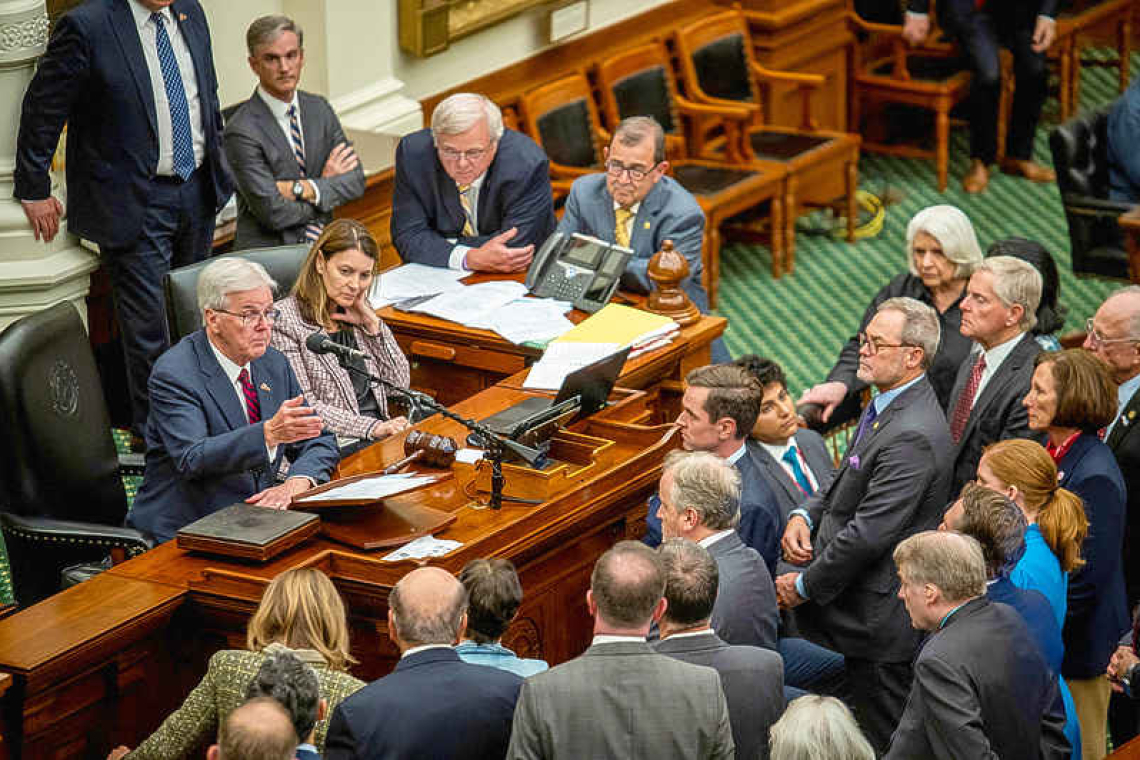WASHINGTON--President Donald Trump's push for Republican-led states to redraw their U.S. House of Representatives districts to protect their majority in next year's midterm elections could set the stage for Republicans to dominate the chamber in decades to come, political analysts and experts said.
Republicans hold a 219-212 House majority and Trump is looking to break the streak of midterm House losses for the sitting president's party -- as happened to him in 2018 and to Democratic President Joe Biden in 2022 -- by pushing states starting with Texas to aggressively redistrict. Democratic states, led by California, have threatened to retaliate by redrawing their own districts for partisan gain, a longstanding feature of U.S. politics known as gerrymandering that has grown far more potent thanks to modern data analysis tools.
But Republicans hold the advantage, with control of the state legislatures and governorships of 23 states, compared with 15 for Democrats. Further, independent analysts say, population shifts could create as many as 11 new congressional seats in Republican Southern and Western states after the 2030 U.S. Census.
Democrats enjoyed 40 years of unbroken House control beginning in 1955 and ending in 1995 as conservative Southern Democrats defected to the Republican Party in earnest.The current redistricting battle has raised concerns about a new era of gerrymandering, with Republicans and Democrats jockeying for advantage and further dividing an already polarized nation.
"I feel like it's cheating," said Adam Kinzinger, a Trump critic and former Republican congressman who lost his Illinois seat to redistricting after the 2020 census. "Every time we break a norm in politics now, that norm never comes back. It'll be an avalanche of constant redistricting. I worry about that."
The Republican-controlled Texas state legislature last week passed a new map meant to provide five more Republican seats. The Democratic-led California legislature responded by proposing a map that would give Democrats five more seats, though the state's voters will have to approve that move in a November special election.
A Reuters/Ipsos poll this month found that most Americans oppose partisan gerrymandering, to the degree that many worry about American democracy itself being in jeopardy.
Nonpartisan election analysts currently rate just three dozen of the nation's 435 House districts as competitive in the 2026 midterm elections, pushing the real contests to party primaries that select more partisan lawmakers less interested in compromise."That would be another way of saying that the will of the voters is not being reflected in the outcome of the election," said Thomas Kahn, acting director of the Center for Congressional and Presidential Studies at American University.
"If Republicans build institutional advantages, whether through fundraising ... or through gerrymandering, then essentially they will be creating a lock on the House. And I don't think that's good for democracy," he added.







